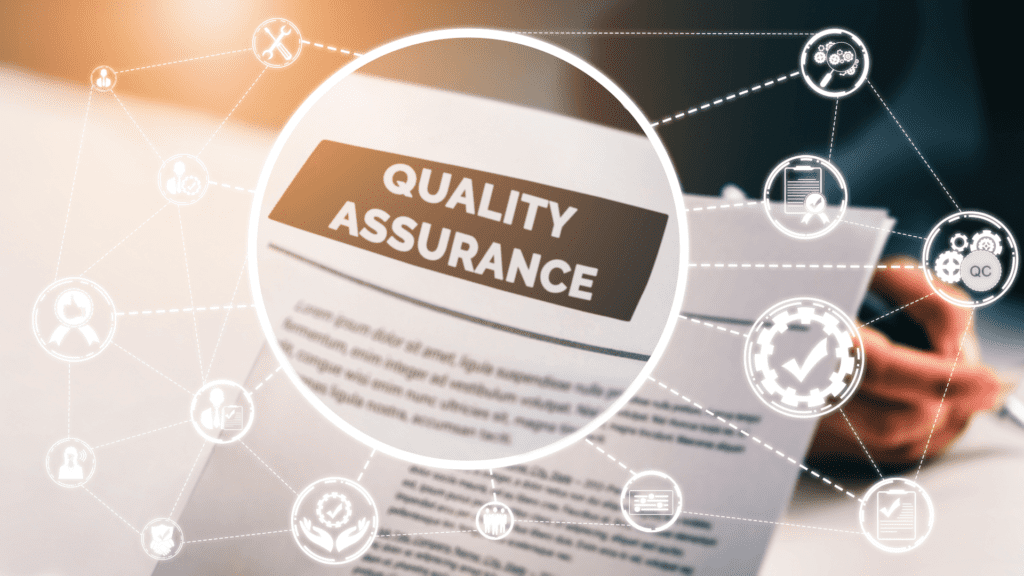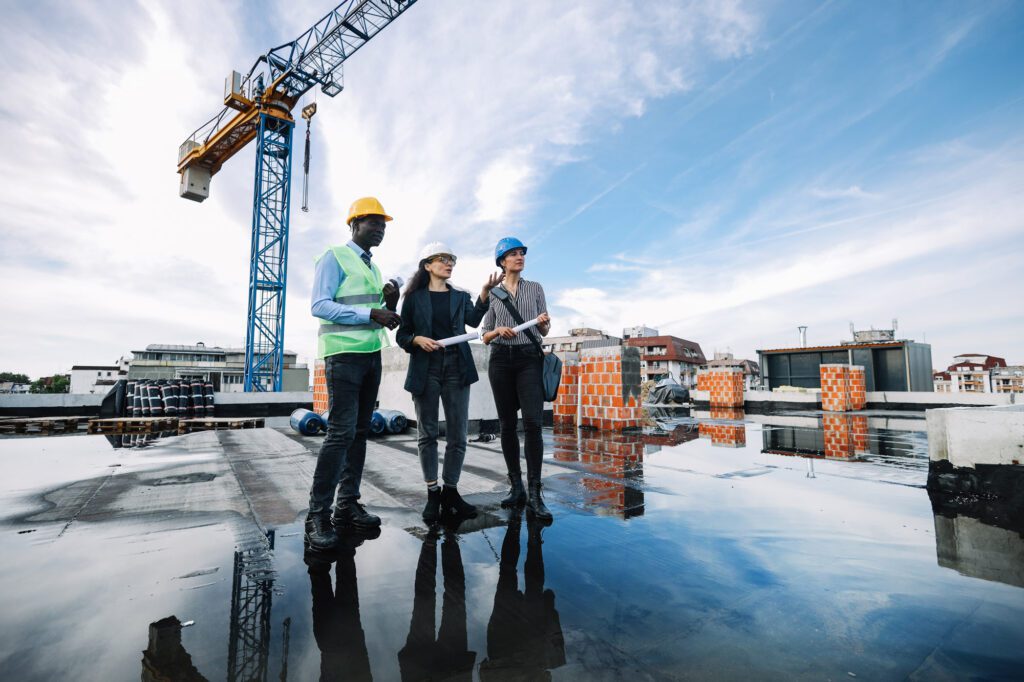What is the Role of a Welding Consultant?
In today’s industrial world, welding plays a crucial role in constructing everything from buildings to bridges. Making sure that welding procedures in Edmonton are done right is essential for safety and quality. This is where welding consultants step in. They’re the experts who ensure that every weld holds strong and meets all the necessary standards and requirements.
Let’s take a look at what a welding consultant does and how they benefit many industries:
Technical Expertise
Welding consulting companies possess deep expertise in metallurgical consulting and welding engineering in Edmonton.
Their collective knowledge spans materials testing, welding procedure development, and compliance with stringent industry standards.
Materials Testing
Welding consultants specialize in materials testing, meticulously analyzing metals’ properties and characteristics. This process ensures the compatibility and durability of materials used in welding projects, laying the foundation for successful outcomes.
Inspections
A core aspect of a welding consultant’s role is conducting thorough inspections throughout the welding process. These inspections, which adhere to strict standards and specifications, help identify any potential defects or issues early on, ensuring the integrity and safety of the final product.
Welding Engineering
Consultants design and optimize welding procedures tailored to each project’s unique requirements. Their knowledge enables the development of efficient and effective welding processes, maximizing productivity while maintaining quality standards.
Welding Procedure Development
Central to their services is the development of welding procedure specifications (WPS). These documents are the blueprint for ensuring the quality, consistency, and safety of welding processes.
Elements of a good WPS document include:
Quality
Welding consultants prioritize the development of quality-focused welding procedure specifications. By carefully creating procedures tailored to each project’s requirements, the welding processes meet the highest quality standards, resulting in durable and reliable welds.
Consistency
Consistency is key in welding operations, and consultants play a crucial role in establishing uniformity across procedures. Developing standardized WPS promotes consistency in welding practices, leading to predictable and repeatable outcomes in every project.
Safety
Safety is paramount in welding, and consultants prioritize it in every aspect of procedure development. Incorporating safety protocols and best practices into WPS mitigates risks and ensures a safe working environment for welders and other project personnel.
Quality Assurance and Compliance

Ensuring quality assurance and compliance lies at the core of the welding consulting role. Consultants oversee every aspect of welding processes, from initial design to final inspection, to uphold the highest standards of quality and meet regulatory requirements.
Here’s how they do it:
- Implementing rigorous quality assurance protocols to verify adherence to industry standards and project specifications.
- Conducting thorough inspections and tests to evaluate weld integrity and performance.
- Ensuring compliance with regulatory frameworks such as CSA (Canadian Standards Association), CWB (Canadian Welding Bureau), or ISO (International Organization for Standardization).
- Providing detailed documentation and reporting to facilitate audits and regulatory inspections.
Problem-Solving and Troubleshooting
Welding consultants excel in problem-solving and troubleshooting within the welding domain. When challenges arise during welding operations, these experts bring their extensive knowledge and experience to swiftly identify root causes and develop effective solutions.
Examples of potential welding issues that welding consultants may encounter include:
- Weld Defects (e.g., porosity, lack of fusion, cracks)
- Material Incompatibility
- Incorrect Welding Procedure Specifications
- Insufficient Welder Training
- Equipment Malfunction or Maintenance Issues
- Environmental Factors (e.g., humidity, temperature)
- Inadequate Welding Parameters
- Non-compliance with Industry Standards and Regulations
- Welding Distortion or Warping
- Inconsistent Weld Quality Across Projects
- Safety Hazards and Risk Exposure
- Material Contamination or Impurities
- Joint Design Flaws
- Welding Process Inefficiencies
- Lack of Quality Assurance Measures
- Communication Breakdowns Within the Welding Team
By offering timely and reliable problem-solving assistance, they contribute significantly to project success and client satisfaction.
Risk Management
Effective risk management is a key part of welding consultant services.
Welding consultants assess potential hazards and vulnerabilities, and they develop comprehensive risk mitigation strategies.
This ensures that projects progress smoothly while minimizing the likelihood of costly setbacks.
Potential Hazards
Welding consultants assess the work environment, materials used, and the welding process itself to pinpoint any potential risks to personnel safety or project integrity.
Risk Mitigation Strategies
Once potential hazards are identified, welding consultants develop comprehensive risk mitigation strategies. These strategies may include implementing safety protocols, modifying welding procedures, or introducing additional protective measures to minimize the likelihood and severity of accidents or failures.
Minimize Costly Setbacks
By proactively managing risks, welding consultants help minimize costly setbacks in welding projects. Whether it’s avoiding accidents, reducing material waste, or preventing rework due to defects, their strategic approach to risk management ultimately safeguards project timelines, budgets, and reputations.
Project Management Support
Project management support is a cornerstone of the services provided by welding consultants. These professionals bring organizational efficiency and strategic oversight to welding projects, ensuring seamless coordination from start to finish.
With their expertise in project management methodologies, welding consultants streamline workflows, allocate resources effectively, and strictly adhere to project timelines. Their role involves orchestrating the various aspects of a welding project, from initial planning and budgeting to execution and completion.
Welding consultants facilitate communication and collaboration throughout the project lifecycle by serving as mediators between contractors and suppliers. They also implement robust monitoring and evaluation mechanisms to track project progress and identify any deviations from established goals.
Ultimately, the project management support provided by welding consultants is instrumental in achieving project objectives efficiently and effectively. Their strategic guidance and hands-on involvement contribute to the success of welding projects, enabling clients to realize their goals with confidence.

Training and Education
Recognizing the importance of knowledge, these firms offer specialized training and educational programs. By equipping personnel with the latest techniques, best practices, and safety protocols, they empower teams to excel in their roles and drive continuous improvement.
Specialized Training and Educational Programs
Welding consultants offer specialized training and educational programs tailored to the needs of welders and other personnel involved in welding projects.
These programs provide comprehensive instruction on various welding techniques, equipment operation, and safety procedures, equipping participants with the skills and knowledge necessary for success in their roles.
The Latest Techniques and Best Practices
Staying on top of advancements in the field, welding consultants impart the latest techniques and best practices to their trainees. Through hands-on demonstrations and theoretical instruction, participants learn innovative approaches to welding that improve efficiency, quality, and overall project outcomes.
Safety Protocols
Central to any training program provided by welding consultants are safety protocols. Recognizing the inherent risks associated with welding, consultants emphasize the importance of adhering to strict safety measures and procedures to protect personnel and minimize workplace accidents.
By instilling a culture of safety, they ensure that all participants prioritize their well-being while performing welding tasks.
Trusted Engineering Consulting in Alberta
When it comes to welding, precision and quality are non-negotiable. Each weld must meet stringent standards to ensure structural integrity and safety. In Canada, where industries rely on robust infrastructure and impeccable craftsmanship, the importance of precise welding practices cannot be overstated.
At Qualimet, we specialize in providing comprehensive support for a wide range of industries. With expertise in metal fusion and structural evaluation, our services cater to the diverse needs of businesses across various sectors.
While our primary focus remains on serving the Oil & Gas, Manufacturing, and Construction industries, our extensive experience spans over 50 years, during which we have successfully assisted clients in Aerospace, Automobile, Chemical, Food and Beverage, Power Generation, Insurance & Litigation, Mining, and Nuclear Power sectors.
Trust us to deliver tailored solutions to meet your specific requirements and ensure the success of your projects. Our experienced team is here to guide you toward success.
Contact Qualimet today to ensure your welding projects meet the highest standards of safety and excellence.
